- Thursday, 19 February 2026
Shun The Politics Of Muddling Through
The notion of 'muddling through' describes a situation of difficulties in which national political leadership engages in various efforts to overcome them and continuously keeps on trying to find their resolution for the future. Nepali leaders know that the ideological whitewashing of the past neither inspires the present techno-crazy generation nor the future is well defined and articulated where people pin unbounded hope. The post-conflict constitution, transitional justice and peace process saw a fondness for muddling around rather than developing a clear path to leap forward. The verdicts of the Supreme Court have nullified the politics of muddling through on various issues such as Citizenship Act, Tanakpur, dissolution of parliament, price hike of petroleum projects and countless others.
Recently it has invalidated the term 'People’s War', sending shockwaves to CPN- Maoist Centre and its splintered groups. But it has not undone its outcome that landed the nation to the present condition where political forms of radicalism, liberalism, populism, conservatism and regionalism fight for political space and unleash a terrain of discourse in diverse directions. What is common is the formation of political cultures of all Nepali parties. They share centralised structures built on conformism, not a critical sense of inquiry founded on civic education to keep democracy disciplined, decentralised and lively. It has corroded the institutional muscle of participatory democracy and its ability to evade the governance muddle through.
Conflict of interests
Technological evolution has invalidated the idea that progress emerges from conflict of interests, ideologies or identities — class, region, gender, ethnicity and intergenerational lines. It has transformative effects. But the selective use of science and technology in Nepali society does not inspire equal progress across social classes and space. Immanuel Kant long ago said that the motive force of history is the expansion of human freedom. It refuses single unit determinism of life —fatalism, geography, history, economy, psychology and even technology. Determinism is the enemy of freedom and choice for the people. Nepal’s various stages of democratic struggle are also meant to broaden the scale of freedom, social justice and progress.
But it appeared weak to establish its political culture and moral and material conditions. As a result, the political pattern marks a sign of muddling through. The nation’s constitutional justification for socialism-oriented economy is premised on finding an economic stability in the middle ground between property rights for individuals and a concern for public goods. The execution of this and provisions of social justice, social security and social protection can help to achieve the vision of an egalitarian society. It can also balance the dialectic of market moving in an anti-egalitarian direction and the egalitarian effects of democracy and makes qualitative differences in the life of Nepalis.
But so long as politics is played on a game of winner-takes-all, it does not matter whether Nepal has one party hegemony, bigemony of two parties or multi-party pluralism where elites specialised in power game dominate the entire political process either through collision with rivals or collusion them, thus leaving the masses a mere spectator of democratic outcome, not sovereign people with civic competence to decide the course of politics. To overcome this dilemma, the constitution of Nepal has embraced social inclusion, proportional representation and positive discrimination to uplift the left out sections, expecting to create a level playing field for all political forces.
There is a caveat, however, so long as proportional seats are distributed to clients, loyalists and cronies, sold to business elites or rent-seeking groups, national public and political institutions fail to become democratically accountable to the larger public where various forms of people’s struggle can only make politics muddle around, without staring into the future. To arrest this dilemma, the coalition government of Nepali Congress and CPN-UML as per its promise during the formation of government has set up a task force to define areas of constitutional amendment, assess the flaws in the constitution, identity issues constraining political stability and economic progress, discuss with all political parties on building consensus, make provinces functional and expedite the delivery of public goods.
The main opposition, however, resorts to the adoption of a fully proportional system, direct election of executive head of the nation and formation of cabinet with specialised experts rather than legislators. Other parties have yet to unveil their demands, legitimate or revolutionary, which may make consensual amendment of the constitution an Achilles’ heel. Rastriya Prajatantra Party aspires for regime change, not just the constitution while Rastriya Swatantra Party and small radical parties prefer to replace the entire governing class for a fresh start.
To escape the spectre of the past, leadership has to make constitutional amendments suitable to all the generations of human rights, build bridges across economic divides and foster an inter-connected form of governance that addresses many substantive issues Nepalis are confronting. Like in many African nations, Nepal has practically evolved a patrimonial regime which keeps powerful leaders above law and order and applies selective justice. Such a regime makes the justice system feeble to fairly adjudicate disputes, protect people’s rights, act as a guardian of the constitution and settle the cases either on the basis of rationality or the spirit of constitutionalism. It undercuts the spirit of representative government and unnerves political stability.
Democracy cannot be confined to the majoritarian government and profusion of legal rights to citizens without matching opportunities to realise them, leadership accountability to power and a robust national integrity system. The expansion of constitutional rights of Nepalis without toning resources of the state presents an ideal condition for turbulent politics that believes in the wisdom of the crowd and a variety of collective action. Karl Jespers says, “Democracy requires the whole people to be educated so as to develop every one’s thought and judgment to the limits of their natural capacity.”
This makes people rational, capable of removing the irrational evils of society such as corruption, cronyism, crime and abuse of human rights. Participatory governance requires proper management of opposition parties, newly mobilised social groups and even the ultra-revolutionary forces under constitutional dispensation. Otherwise, demands overload can twist the organised politics from above and cause system dysfunction at below thus disabling the leadership to escape from the politics of muddle through or muddle around.
Nepali leadership for long has developed a tendency to bend welfare constitutional democracy to financial capitalism thus draining the institutional economic base of mass participation in politics. Decline in agricultural and industrial production and massive job layoffs threatened the material satisfaction of people, plunged the nation into violent class conflict and systemic drain of brain, students, labour and businessmen. The radical assault on political order enfeebled the state, political system and all public institutions but increased the bargaining power of bureaucrats, technocrats, businessmen, special interest groups, social movements and non-state armed actors for sectional interest satisfaction, not the fulfillment of general rights of Nepalis.
The ensuing political trends too indicate the conversion of democracy into partiocracy as all-party committees at the central and local levels controlled the levers of power, resources and dispute resolution mechanism till it was declared null and void by the court’s verdict. The proliferation of civic and political institutions and formation of inclusive constitutional commissions thus do not mean that Nepali democracy is fully institutionalised and robustly consolidated with no risk of either spillback or spillover.
The political space of Nepal is increasingly becoming more convulsive than in the past and, therefore, past politics cannot serve as an ideal condition to inspire people socialised by critical media, many autonomous groups of social classes, civil society and various types of struggles espousing unbounded expectations. The spectre of past politics cannot serve as a model for youths’ retention in the nation. The gender, generational and social pressure in Nepali society can only create a vicious cycle from which breaking away may be hard. But a break is necessary for social and national cohesion. The control of the current condition of muddling through the political stasis, economic sap and social fractures requires effective and virtuous good governance.
Law-based freedom
The establishment has to transform either the root causes of conflict or create conditions of better living for Nepalis. Such a condition requires fair return of land, labour, capital, technology and investments including ecological renewal under the sanction of the constitutional state. Democracy is designed to achieve law-based freedom with accountability and transparency. It cannot be reduced to any institutional units including social identity that deflates national identity or political equation which does not count the powerless and minorities in policy attention.
So long as the institutional and constitutional political culture of Nepal remains flimsy with the rise of anomic and populist forces, bureaucratic and technocratic logrolling will continue to overwhelm popular sovereignty that demands that power and legitimacy should spring from bottom up. It is here democratic vigilance of a vibrant public sphere is needed. Sadly, this public sphere is weakened by excessive party-mindedness. It requires revitalization so that public policies are sensibly shaped to give ownership and hope to everyone, including the poor. Only then can Nepali politics find its universal spirit to serve the public and national interests and gradually spurs a condition of freedom, justice and peace beyond the habitual politics of muddle through.
(Former Reader at the Department of Political Science, TU, Dahal writes on political and social issues.)



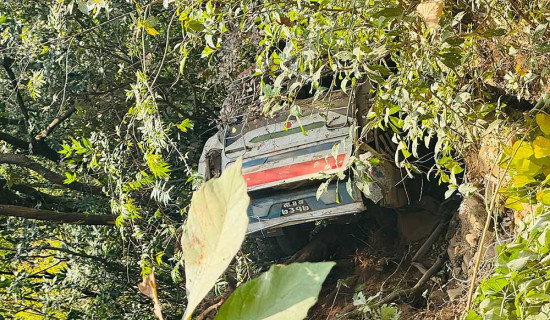
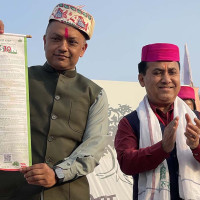
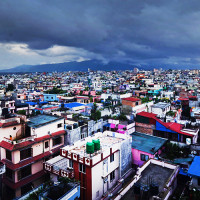
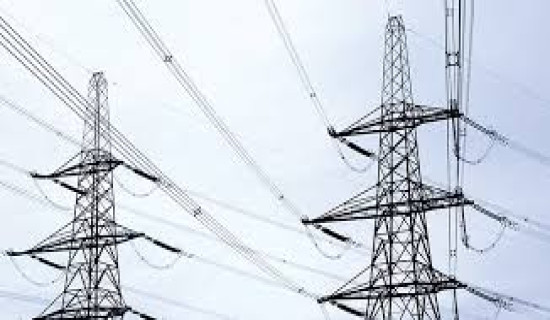
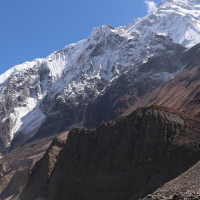
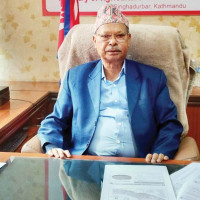
-original-thumb.jpg)






